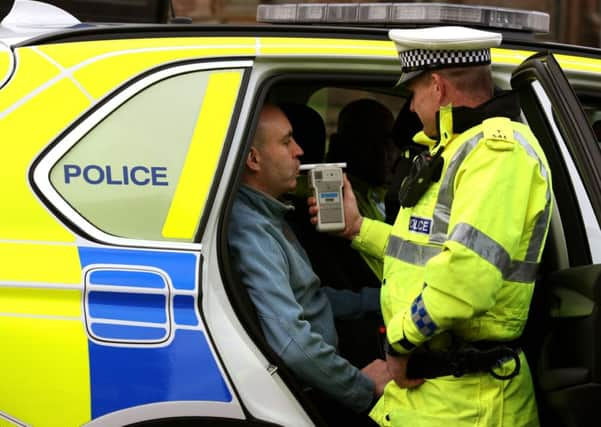Fears over accuracy of self-testing breathalysers


Sales of alcohol testing devices are said to have surged since it was announced the legal drink-driving limit would almost be cut in half.
It means that instead of being able to consume around two pints of beer, drivers will be restricted to a single pint. But one of the major concerns is the impact the morning after drivers have been drinking, when blood alcohol levels can continue to remain high.
Advertisement
Hide AdAdvertisement
Hide AdA spokesman for one of the leading over-the-counter breathalysers, AlcoSense, said sales in the firms self-testing kits have “shot up” since the Scottish Government announced plans to lower the legal limit last month.
Several high street retailers across Edinburgh, including Halfords and Boots, stock the product while the sale of smartphone apps like Alcohoot have spiked this year.
But alcohol campaigners and industry experts have warned that the devices may ultimately prove dangerous. Paul Waterson, a spokesman for the Scottish Licensed Trade Association, said most of the self-testing kits were unreliable.
“These tools can be dangerous in that they only provide an instant snapshot of your alcohol levels,” he said.
Advertisement
Hide AdAdvertisement
Hide Ad“Those levels very well may continue to increase throughout the night after you’ve consumed a drink, and so readings can be misleading.”
Dr Peter Rice, chairman of the Scottish Health Action on Alcohol Problems, said police breathalysers were “extremely sophisticated” and could produce accurate readings the retail product could not match.
“Just because a self-testing kit claims you are under the limit doesn’t make it true,” he said. “That margin of error could prove deadly for other road users – or costly for drivers that are caught over the limit.”
From midnight, drinkers will be limited to just 50mg of alcohol in every 100ml of blood, rather than 80mg.
Advertisement
Hide AdAdvertisement
Hide AdAnalysts say it takes roughly ten hours to be alcohol-free after drinking a bottle of wine. As a result, just under a fifth of all drink-driving prosecutions stem from drinkers getting pulled over in the morning.
Richard Knight, associate director of alcohol and road safety consultancy VMCL, said reliable testing kits can cost up to £80 but even then the results were not guaranteed.
But Neil Greig, of the Institute of Advanced Motorists, said technology has its benefits.
“If you’re planning on getting behind the wheel the next morning, over-the-counter breathalysers can provide decent guidance on whether you’re able to drive,” he said.
Advertisement
Hide AdAdvertisement
Hide AdHunter Abbott, of AlcoSense, said demand in Edinburgh has soared in recent weeks.
He said: “The Scottish Government didn’t give advanced notice, so we’ve been struggling to cope with the amount of orders we’ve been receiving,” he said. “But our products are not designed to be used immediately after consuming a drink – they’re meant to be used the morning after, so that users can test whether they’re fit to drive hours after their final drink.”